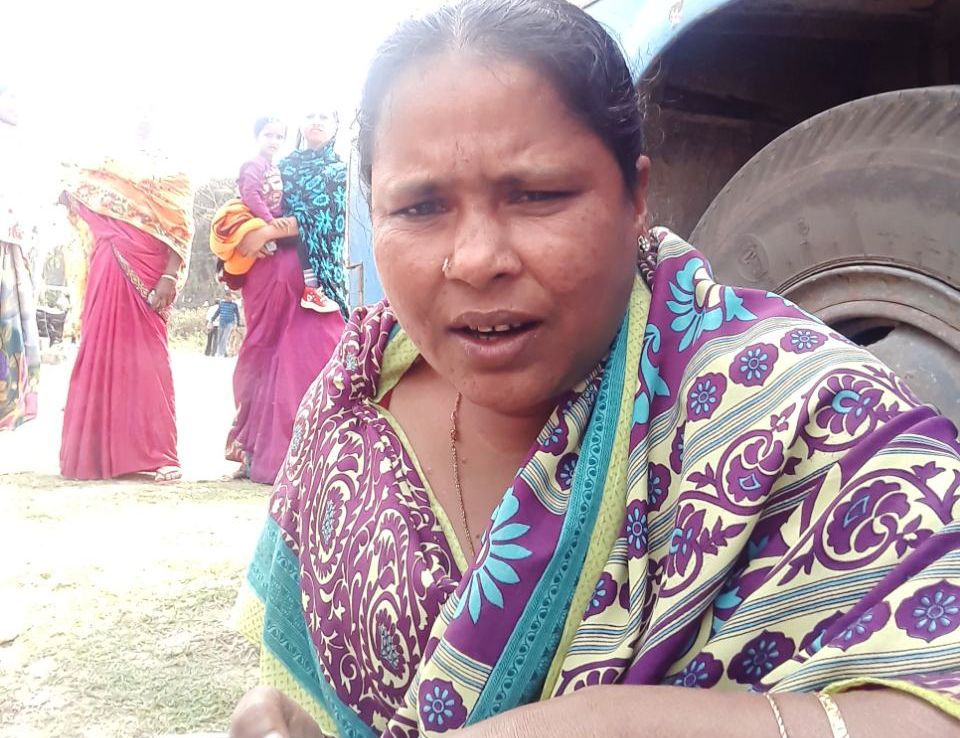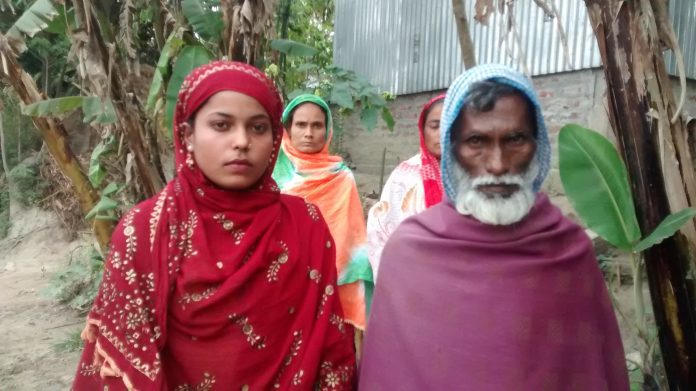The Idea Of a ‘Foreigner’:
The Assam Accord, signed in 1985, has played an extremely important role in this regard. The issue of ‘foreigner’ was central to this Accord. Contested migrations after two partitions (1947 and 1971) along with a subsequent surge in Assamese nationalism resulted in a policing of “foreigners”. As a result, the Assam accord enlisted a series of measures to be taken as part of a Memorandum of Understanding between the then Prime Minister Rajiv Gandhi and the All Assam Students Union along with Assam Gana Sangram Parishad. One of the most important points of the Accord was that all ‘foreigners’ who had arrived after March 1971 be expelled from the state.
The Creation of a D voter:
Following the Accord, it was in July 1997 that the Election Commission of India (ECI) asked the state government to segregate its citizens and non-citizens. Following this, the ECI prepared a list of voters in the state and mark ‘D’ (doubtful) next to the names of people who were suspected to be non-citizens. In 1997, this list included 3.5 lakh names. As of February 2017 according to Assam Parliamentary Affairs minister Chandra Mohan Patowary, the Assam Border Police were conducting investigations into 6,21,688 cases related to foreigners till October 2016. Of these, 4,44,189 were referred to the 100 Tribunals established in the state, where about 2,01,928 cases are still pending.
Detentions:
Among the cases that have been ‘resolved’ however, are the stories of about 1,800 persons who have been detained across Assam on charges of being a Bangladeshi. Even the most cursory conversations with the families of the detained people show that almost all the detainees belong to poor families who could barely afford any lawyers or appeal against the judgement issued by the Foreigners’ Tribunal. Since this issue comes under the Foreigners Act, 1946 and Foreigners (Tribunal) Order, 1964, a lot of times the lawyers are unaware of how to approach the case but nevertheless take it for easy money.
In this three-part series, TwoCircles.net looks at how detention camps are wreaking havoc with the lives of people, especially Muslims, across the state. In the second of a three-part series, we tell the story of Kamala Begum, a middle-aged Bengali woman who was born and brought up in Barpeta. However, due to a mix of legal complications and incompetent lawyers, Begum has been in detention for nearly three years now with no hopes of coming out. After her arrest, her daughter’s dreams were crushed and her husband remains bedridden, dependent on well-wishers to survive.
The month was September, the year 2015. Mumtaz Dewan, then 19, was in her fourth semester at the Kayakuchi College located in the Kayakuchi village of Sarthebari Tehsil of Barpeta district. During one of her classes, her mobile rang. It was her mother, Kamala Begum, calling. This was not something unexpected, Mumtaz thought. She called her back after the end of her class, only to be stunned by what her mother said on the phone. “I am in the SP office…my appeal was dismissed in the Gauhati High Court. They are going to take me to the detention camp,” was all she could say before she burst into tears on the phone. In just a few minutes, the lives of Mumtaz and Kamala changed forever.
Nearly three years later, Mumtaz says she remembers the entire day like it happened yesterday as she welcomes us to her father’s house. It is an extremely overcast day and as there is no electricity, we sit in near darkness until Mumtaz opens a side-door. The house was allotted to the family as part of the Indira Awas Yojana in the early 70s. As we sit on plastic chairs, she begins telling us about the tragic story of Kamala Begum, her mother and an ‘illegal Bangladeshi’ residing in Assam.
“My mother was declared a D voter in 2014…that time, she used to work in the Barpeta office of a Guwahati-based NGO, cleaning dishes and making tea,” Mumtaz says in the beginning. With a salary of Rs 3,000, she took care of her ailing husband but more importantly enrolled her daughter in college so that she could study and make a career. “That was her biggest dream,” Mumtaz says, as her voice begins to quiver. “She did not have a son and my elder sister had already got married, so she wanted to do everything to ensure that I can become something and take care of them,” Mumtaz says, now in tears.

Kamala Begum.
When her name was listed as a Doubtful voter in 2014, Kamala Begum was incensed. Usually, after a person is deemed D Voter, he/she receives a summons from the Foreigners’ Tribunal asking him/her to appear before the Tribunal and prove their citizenship. But Kamala did not have the patience to wait. “She went to the Tribunal on her own accord…for her, this was a matter of disrespect and extremely insulting. She would say ‘How can I be called a Bangladeshi when I have lived all my life here’? She wanted to do everything in her power to get rid of that label,” Mumtaz recalls. However, once in the Tribunal, things began to go downhill for Kamala.
Kamala might have been passionate about her case, but, as Mumtaz points out, she was illiterate and could not understand the legal proceedings. She was born about 20 km away from her home in Kayakuchi in the same district but had never voted in her native village. “There is every chance that in some documents, her name’s spelling might have been misspelt or that her name appeared on another electoral roll. It could also be that her father’s name might have been spelt wrong which put her legacy in question,” Mumtaz says. The family was not helped by the fact that their lawyer in the Barpeta Foreigners’ Tribunal was incompetent.
Saiful Islam, Kamala’s nephew and the only member of the family who can manage to visit her regularly, explains. “When she lost her case in the FT towards the end of 2014, we were shocked. The lawyer, who I do not wish to name, took a lot of money but clearly did not do his job well. So, we approached the High Court hoping that the ruling will be overturned.” he says.
Until the Gauhati High Court passed a verdict, she was mandated to appear in the Barpeta SP office every month. “I do not know how or why, but the case in High Court also fell apart,” says Mumtaz. “In September 2016, when my mom went to appear before the SP, she was told that her case had been dismissed in the HC also and that she was under arrest. Our lawyer, who was arranged by a political leader following our pleas, was so uninterested in the case that he did not even bother to inform the family,” she adds.
The arrest of Kamala brought Mumtaz and her father’s life to a complete standstill. Left without the only breadwinner in the family, Mumtaz and her father had to depend on their extended family to meet even the basic needs. With only two semesters left, Mumtaz had no choice but to drop out of college. “Who would pay my fees in the absence of my mother?” she says, her voice still shaking from the traumatic memories of the period. “I went from the chances of building my career to being married to my uncle’s son within months. Now, I was just another housewife with no independence and with no one to take care of my father,” she says. By now, tears are rolling down her cheeks as her father, who is sitting next to her, stares at us dead silent. Even though it is March, he is wrapped in two old shawls and on days he is feeling better, he can barely manage to go the toilet.
“After marriage, you are a member of that family. You have to do things the way they want you to do…my in-laws are much more considerate than my sister’s in-laws but they also don’t want me to be visiting my mother every week or month. In fact, last year I met her after a gap of nearly 12 months and haven’t been able to meet her since,” she says. Given that she has no money of her own, she cannot ask her in-laws to pay for the travel and give her money so that she can give some to her mother, Mumtaz says.
But the bad news did not end for the family here. After the HC, the court managed to go to the Supreme Court also, only for her case to be rejected there also. “Till date, we do not know why our case has been rejected…the HC and SC refused to overturn the FT order but even now we do not know what exactly did the FT find so fishy about her case,” Mustafa Ali, Kamala’s brother, says. Sitting next to him is the mother of Kamala Begum, Rashida Begum who is in her early 90s. Barely able to walk and partially deaf, Rashida starts crying the moment she hears her daughter’s name. “I haven’t seen my daughter in three years now…my family says she has a tumour and diabetes…I want to see her before I die. How can they do this to my daughter,” Rashida says in a tearful voice. “People around me ask: why don’t you go to see her? I tell them how can I? I can barely walk and will not be able to sit on a bus for so long…it hurts me so much every time I think of her. She was born in this house,” she adds.
It is a question that still brings tears to all the family members. “We are all Indian citizens until now at least…then how can she be a Bangladeshi? How does this even happen and what can we do about this? Will they send her to Bangladesh? No. They just want her to die in the detention camp,” says Mumtaz. “To be honest, even deportation would be better than the condition in which she is being kept right now. No human deserves to be treated like this, least of all an Indian citizen in her own state,” says Saiful.
Courtesy: Two circles

